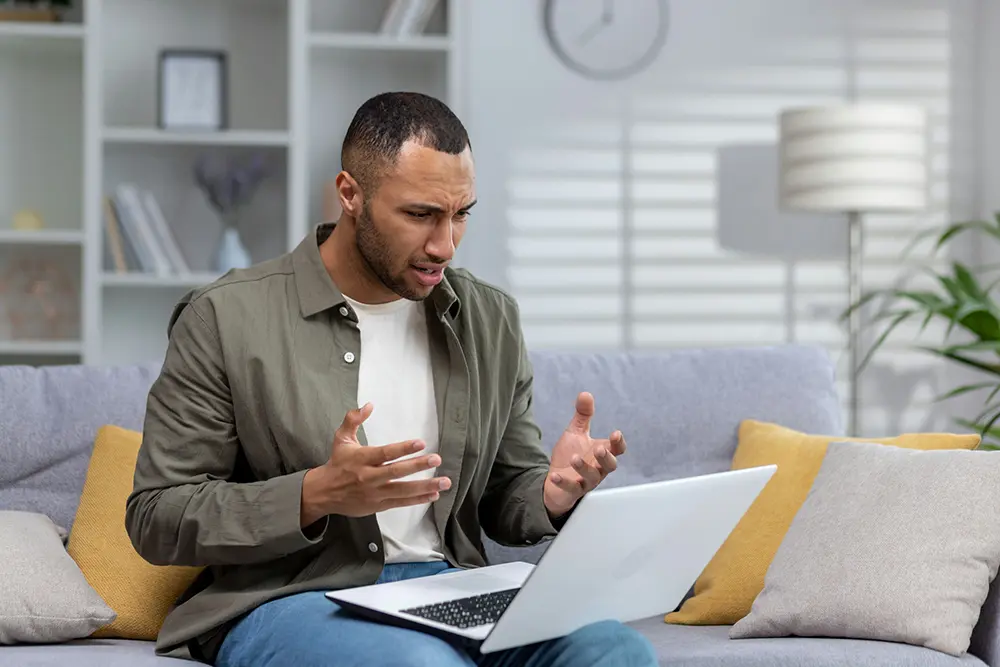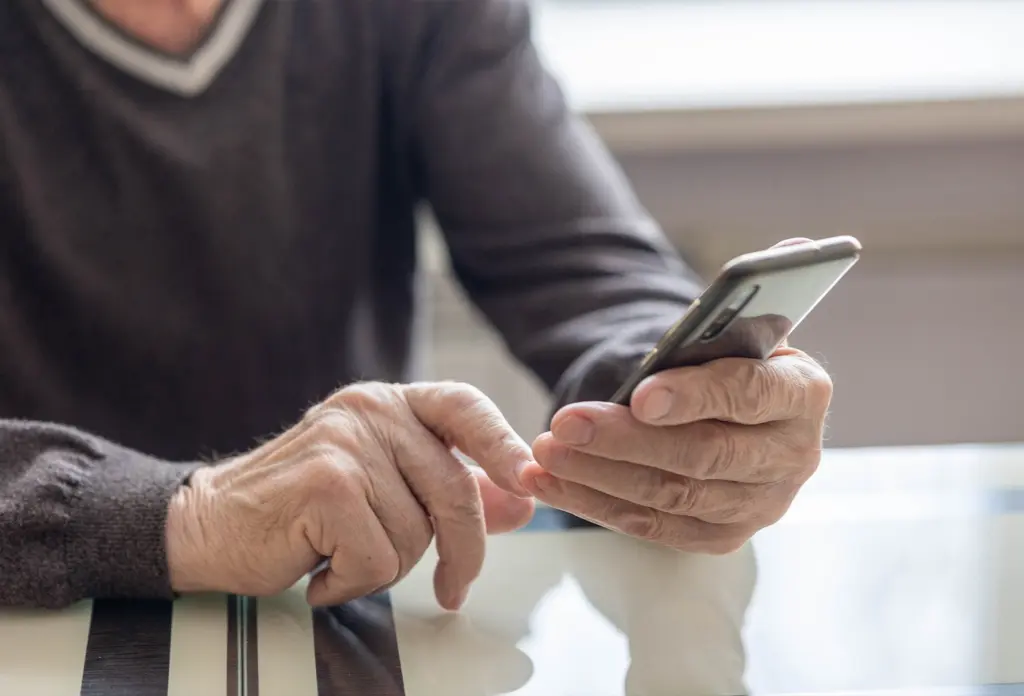Depression is one of the most common mental health conditions worldwide. According to the latest data, millions of people in the United States experience symptoms of depression each year, yet many face obstacles to getting help, such as cost, transportation, or limited provider availability. In recent years, more individuals have turned to digital solutions, with online therapy use increasing significantly.
Online depression therapy is a clinically recognized approach that uses technology to connect people with licensed mental health professionals. This option removes distance, travel, and scheduling barriers that can prevent people from seeking care. Harmony Hills is dedicated to offering comprehensive mental health support and helps individuals explore a range of therapy options, including online therapy when appropriate.
What Is Online Therapy For Depression
Online therapy for depression is professional mental health treatment delivered through secure internet-based platforms. Individuals engage with licensed therapists using video calls, secure chat, or phone sessions, rather than visiting a therapist’s office in person.
Therapists providing online depression therapy hold the same credentials as those working in traditional settings. They use evidence-based methods such as cognitive behavioral therapy (CBT) and dialectical behavior therapy (DBT), which have both been shown to be effective in treating depression. Sessions take place on platforms that meet privacy standards, including HIPAA compliance.
Recent studies indicate that online therapy is effective for many people with depression. Key characteristics of online depression therapy include:
- Licensed professionals: Therapists are trained and certified, just like those in clinics or hospitals.
- Evidence-based treatments: Approaches like CBT and dialectical behavior therapy are commonly used.
- Secure platforms: Technology meets privacy and confidentiality requirements.
- Flexible scheduling: Sessions can be arranged at times outside traditional business hours.
Harmony Hills supports individuals in finding the right care, whether through in-person treatment or exploring online therapy options that meet their needs.
How Effective Is Online Depression Counseling Compared To In Person Care?
Online depression therapy and in-person therapy achieve similar results for individuals with mild to moderate depression. Many report that satisfaction levels are high among those using online therapy, with people noting the privacy and convenience of remote sessions.
The following table summarizes some key differences and similarities:
| Aspect | Online Therapy | In-Person Therapy
|
| Clinical effectiveness | Comparable outcomes for mild-moderate depression | Well-established effectiveness |
| Accessibility | Available anywhere with internet | Limited by location |
| Cost | Often more affordable | Higher overhead costs |
| Scheduling flexibility | 24/7 availability options | Business hours typically |
For individuals with severe depression or complex mental health needs, in-person care may be more suitable.
Who Provides The Therapy And Are They Licensed?
Online therapy for depression is provided by licensed mental health professionals. These providers include Licensed Clinical Social Workers (LCSWs), Licensed Marriage and Family Therapists (LMFTs), Licensed Professional Counselors (LPCs), Licensed Psychologists (PhD or PsyD), and Psychiatrists (MDs). Each of these professionals has completed specific education, training, and licensure requirements according to state laws.
Online therapy platforms are expected to employ only therapists who hold valid licenses. These professionals follow the same rules and ethical standards as therapists who see clients in person. Before starting therapy, it is possible to check a provider’s credentials by looking for their license type and number, which are usually displayed on the platform or available upon request.
Different types of mental health professionals may focus on different aspects of depression treatment. For example, psychologists often use therapies like cognitive-behavioral therapy, while psychiatrists can evaluate symptoms and prescribe medications if needed. Each provider’s background and area of expertise can influence the approach used in online depression counseling.
How To Get Started With Free Online Therapy Or Insurance Coverage
Access to online depression therapy can be found through various sources. Some organizations offer free resources, such as crisis helplines and peer support groups, but most professional online therapy services require payment or health insurance coverage. Many insurance plans now include online therapy as part of their benefits, especially following changes made during the COVID-19 pandemic.
1. Check Your Insurance Benefits For Online Counselling Coverage
Contact the insurance provider to ask about coverage for online counseling. Questions to ask include:
- Is online therapy included in the plan?
- What is the copay or coinsurance for a telehealth visit?
- Are there specific platforms or networks required for coverage?
Typically, insurance plans cover any counseling sessions, but be sure to also check if there’s a maximum amount of appointments covered under your plan.
2. Research Licensed Platforms And Providers
When researching online therapy platforms, verify that they employ only licensed mental health professionals and use HIPAA-compliant technology for privacy. Criteria to review include:
- Therapist credentials are clearly displayed
- Communication is secure and encrypted
- Reviews and pricing information are transparent
You may also ask others in your life if they have any experience with online therapy, as they may have a provider or service they can recommend.
3. Schedule Your Initial Consultation
After choosing a provider or platform, schedule an initial session. During this session, personal goals and preferences can be discussed, and a therapist may be assigned based on those needs. Many online services allow users to change therapists if the first match is not suitable. If you’re not comfortable with the therapist you initially choose, ask to switch to a different one.
Is Online Therapy Right For Severe Depression Or Co Occurring Conditions?
Online therapy is often helpful for many people, but it is not always the best choice for everyone. Some situations require care that can only be provided in person.
In-person treatment is usually recommended for individuals who have active suicidal thoughts, because these situations require immediate crisis intervention and close monitoring. People who have severe depression symptoms that make it difficult to carry out daily activities may also be better served by in-person care, including residential treatment, where more support is available.
If someone is struggling with both depression and substance use issues, they may need a type of care called integrated dual diagnosis treatment. This approach addresses both mental health and substance use at the same time, and is often more effective when delivered in a setting where professionals from different specialties work together.
Psychotic symptoms, such as hallucinations or delusions, require specialized psychiatric evaluation and treatment, which are most safely provided in person.
Harmony Hills provides care for people with complex mental health conditions and co-occurring disorders. A thorough assessment by trained professionals helps match each person to the most appropriate type of care, with a focus on safety and the best possible outcomes.
Ensuring Privacy And Confidentiality In Online Sessions
Privacy remains a central consideration in online therapy. Most established online therapy platforms use technology that meets HIPAA standards, which are federal rules designed to protect health information. This includes data encryption and secure logins to keep session information confidential.
There are several ways to maintain privacy during online sessions. Using therapy services that are HIPAA-compliant is one way to help ensure data security. Choosing a private and quiet location for sessions can help keep conversations confidential. Connecting through a secure, private internet network rather than public Wi-Fi reduces the chance of unauthorized access. Keeping devices updated and protected with passwords further safeguards personal information.
What Happens After Online Counseling Ends?
Continuity of care plays a role in maintaining mental health after online counseling ends. Online therapy can be combined with other types of treatment or used as part of ongoing mental health care. Many people continue with maintenance therapy, join support groups, or use crisis resources after their initial online counseling. These options provide additional support and help maintain progress during challenging periods.
Therapists often help clients create strategies for coping, preventing setbacks, and maintaining well-being. A long-term plan may include mindfulness practices, regularly scheduled check-ins, and routines designed for ongoing self-care.
Professional Online Depression Therapy FAQs
If you’re considering online therapy, the answers to the following frequently asked questions may help you.
Can Online Therapy Help With Depression And Anxiety Together?
Licensed therapists use online platforms to treat both depression and anxiety at the same time. People who experience more complex or severe symptoms may participate in an in-person assessment to determine the best care.
How Long Does Online Depression Therapy Typically Take To Show Results?
Some individuals notice changes after about 6 to 12 sessions. The timeline depends on how severe the symptoms are, how involved the person is in therapy, and the type of treatment used.
Can Online Therapists Prescribe Antidepressant Medications?
Psychiatrists, who are medical doctors, are the only mental health professionals who prescribe antidepressants. Some online therapy services include psychiatric care, so a person may receive both therapy and medication management through the same platform.
What Technology Do I Need For Online Depression Counseling?
A smartphone, tablet, or computer with a camera and microphone is used for online sessions. A reliable internet connection supports clear communication, and most therapy platforms work on common devices.
Contact Harmony Hills for a confidential assessment to explore all your treatment options and find the right level of care for your unique needs.
References
- National Institute of Mental Health – Depression
This resource provides information about depression, including symptoms, risk factors, and treatment options. It is maintained by the National Institute of Mental Health, a federal agency focused on research and education about mental health conditions. - American Psychological Association – Telepsychology Effectiveness
The American Psychological Association discusses research and findings on the effectiveness of telepsychology, which refers to therapy and counseling delivered through online platforms. - CDC – Mental Health and Telehealth
The Centers for Disease Control and Prevention shares data on the use of telehealth for mental health services in the United States, including trends and patterns observed during recent years. - Journal of Medical Internet Research – Online Therapy Meta-Analysis
This peer-reviewed article presents a meta-analysis of studies on online therapy. It reviews the effectiveness of online mental health interventions, specifically for conditions such as depression. - Substance Abuse and Mental Health Services Administration – Telehealth
SAMHSA provides guidelines and resources on telehealth, including regulations and best practices for delivering behavioral health care through digital means. - Centers for Medicare & Medicaid Services – Telehealth Coverage
This fact sheet explains insurance coverage for telemedicine and telehealth services, including eligibility and updates related to policy changes in the United States.










